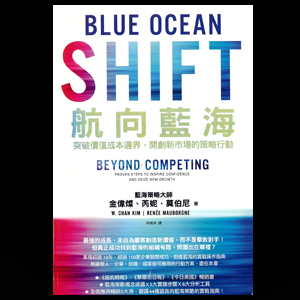02.2019 Life Guide
Classical Case Analysis of Labor Disputes in Pudong Court (Part I)
Far Eastern New Century Corporation (China) Investment / Yuan Guiyuan


With the progress of the times, the government, employers and workers have paid more and more attention to the rights and interests of workers, and the types of labor disputes have become more and more diverse. This issue of "Legal Column of China" illustrates how the courts resolve and hear different kinds of cases in order to safeguard the rights and interests of both employers and employees.
[Case 1]
Limou and other 17 people were former employees of a plastic company in Shanghai. As a result of the demolition of the factory buildings, they signed agreements with the company, agreed that both parties should cancel the contract by consensus, and the company should pay the corresponding compensation for the workers of Limou and other workers at one time. The compensation entertains the relevant departments to pay the demolition of the factory buildings in full within three months from the date of the company, and the two sides will no longer have their own labor matters. He argued, etc. Later, because a plastic company in Shanghai failed to reach a relocation agreement with the relocation company, and failed to pay the above compensation to workers such as Limou, 17 people such as Limou filed labor dispute arbitration, demanding that the company pay the corresponding compensation, while the company did not receive the relocation compensation as a reason, suing for non-payment of compensation.
The facts of the case are clear, but the court is not simply handling the case, but taking the initiative to mediate disputes with local government departments and related units through multi-party linkage. This kind of coordination with the local government and relevant departments of the employing units not only effectively protects the legitimate rights and interests of workers, but also provides a good example for resolving group labor disputes.
[Case 2]
Tian worked as a nurse in a nursing home in Shanghai, staying in the hospital 24 hours a day, arranging work and rest relatively independently. This nursing home records the attendance status of Lin and other employees by punching in the attendance machine, and pays social security. But for Tian and other nursing workers, the way of checking attendance on the attendance form is adopted, and the social security is not paid. Tian Mou has a attendance form every month, which shows the name of the nursing elderly, the date of nursing, the amount of nursing fees, and the date of attendance of nursing workers. And so on, Tian signed the salary slip every month to collect the salary. Among them, the total salary is 65% of the nursing fees paid by the elderly, and the remaining 35% belongs to a nursing home in Shanghai. Whether Tian Mou and the Summer Palace belong to labor relations?
The court held that Tian's attendance was different from Lin's and other employees'attendance. Tian's attendance was only required for calculating nursing fee deduction. Tian was in the nursing home 24 hours a day. The personal subordination between Tian and the nursing home was weak and appeared to conform to the formal characteristics of the labor relationship, but the two sides did not have the essential elements of the close subordination of the labor relationship. Accordingly, when the two sides terminated the labor contract, Tian Mou claimed that the Summer Palace should pay compensation for illegal termination of the labor contract and unpaid annual leave wages, which were not supported by the court. The identification of labor relations between nursing workers and nursing homes in special industries such as nursing homes should be fully examined, and combined with the comprehensive judgment of the identification criteria of labor relations, those who do not meet the identification criteria of labor relations in essence should not be identified as labor relations.
[Case 3]
Liu Mou joined an accounting firm in Shanghai in November 2014 and signed a three-year labor contract. In January 2015, Liu Mou's labor contract was terminated for other reasons. Therefore, Liu applied for arbitration and was awarded the restoration of labor relations between the two sides. Later, Liu applied for arbitration, demanding that the firm pay salaries from February to December 2015, as well as communication fees, food and transportation allowances. After ruling, the court supported that the firm should pay wages during the above period, but did not support Liu's other requests. Both sides disagreed and appealed.
Later, it was found that Liu filled in false accounting experience in his employment data, which led to a Shanghai accounting firm to conclude a labor contract with him in violation of its true intention. According to the provisions of Article 26, paragraph 1 (1) of the Labor Contract Law, the contract is invalid. The employing unit only pays the remuneration for the work that the laborer has already paid, but does not support the remuneration for the work during the recovery period when the laborer has not actually provided the work. Because it is fraudulent for workers to fill in false work experience and other personal information in their resumes, the employer may claim that the labor contract signed with them is invalid. However, even if the labor contract is found to be invalid, it is not valid for the part that the two parties have actually fulfilled according to the labor contract, but for the part that the two parties have not fulfilled, it should not be claimed or performed according to the contract. The employer does not have to pay the wages of the recovery period of labor relations claimed by the invalid labor contract.
[Case 4]
Xu entered a trading company in Shanghai in 2011, engaged in financial management and administrative personnel management of the company, responsible for signing labor contracts with employees on behalf of the company, but did not actually carry out the work, and even Xu himself did not sign labor contracts with the company, thus causing disputes.
The court held that Xu, as a staff member responsible for signing a labor contract, should be aware of the legal consequences of not signing a labor contract, but neglected to perform his duties and did not arrange for all employees, including himself, to sign a labor contract in time. Therefore, he decided that Shanghai should pay double the wage difference of the non-signing labor contract, which was not in accordance with the law. A trading company does not have to pay a wage difference of twice that of a non-signed labor contract.
This case reveals that for the administrative or personnel responsible for the signing and custody of the employing unit's labor contract, if there is no evidence to prove that the employing unit is responsible for the signing and custody of the labor contract, instead of signing the labor contract with the employing unit, their claim that the employing unit should pay twice the wage of the non-signing labor contract is generally not supported.
[Case 5]
Liu has signed an open-ended labor contract with a Shanghai limited company as a mechanic, but there are a large number of books on traditional Chinese medicine in his workplace, and he carries out TCM diagnosis and treatment for different personnel. He has left about 185 records of diagnosis and treatment. He has also aired and processed Chinese medicines in the above-mentioned workplace. Later, a limited company in Shanghai issued a "Notice of Release of Labor Relations" to Liu, taking advantage of the company's equipment, venues and resources during working hours to engage in other profitable activities of non-local work, and rescinding the labor contracts of both parties on the grounds of serious violation of the company's "Employee Handbook" and ethical codes of conduct. Later, Liu initiated arbitration and litigation, advocating that the company should be lifted illegally, and demanding that the company pay compensation for the lifting of illegally.
The court affirmed that Liu Mou's behavior of using company equipment, venues and resources to engage in non-local work during working hours violated the relevant provisions of Employees'Manual, and that a Shanghai Limited Company was legally relieved of its labor relationship with Liu Mou. It can be seen from this that if the worker engages in other matters besides his own work in working hours and places, and has actual impact on the employing unit, the employing unit may terminate its labor contract in accordance with relevant rules and regulations.





















